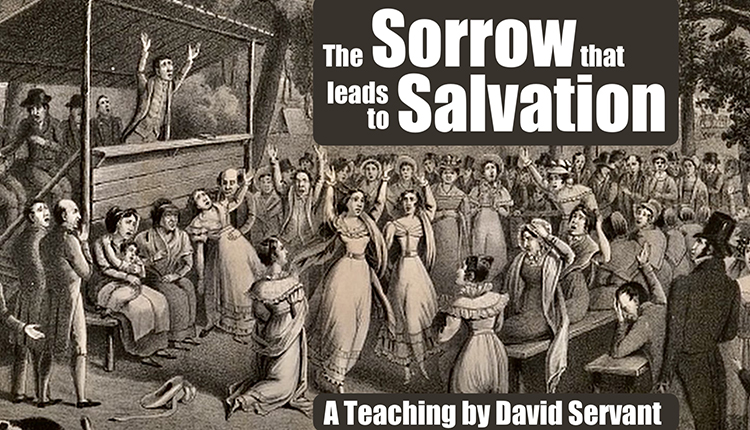
There is a spiritual phenomenon that has almost been lost, but that was quite common in historic revivals. It was sometimes referred to as “coming under conviction”—a time when unregenerate people became unusually burdened regarding their sinful state. So much so that they became utterly distraught, sometimes for days on end. In their misery, some couldn’t sleep.
It often had a lot to do with the soul-searching preaching by revivalists who believed that sinners needed to be fully awakened to their guilt before God and stripped of all their excuses before they would repent and believe the gospel. In early Methodist revival services, for example, there was always a “mourner’s bench,” so-named because of the first Beatitude, where convicted sinners could seek God until they were born again and knew He had forgiven and cleansed them. When He did, their sorrow turned to “joy unspeakable and full of glory.”
Of course, the Holy Spirit, whom Jesus said would convict the world of “sin, righteousness and judgment” (John 16:8), is in the business of convicting sinners, and He works with gospel preachers to that end. “Coming under conviction” is certainly biblical. On the day of Pentecost, Peter’s listeners “were pierced to the heart, and [they] said to Peter and the rest of the apostles, ‘Brethren, what shall we do?’” That was the same question that John the Baptist’s convicted audience members asked him (see Luke 3:10, 12, 14)! When Paul preached the gospel to Governor Felix, “discussing righteousness, self-control and the judgment to come, Felix became frightened and said, ‘Go away for the present, and when I find time I will summon you'” (Acts 24:25, emphasis added).
At times, I’ve seen unsaved people literally tremble under conviction. One person whom I remember in particular, a close friend, literally shook under conviction, but he resisted the gospel, and the conviction eventually left him. Another person whom I recall was shaking in his pew at a church where I was speaking. He got up, drove away in his car, but then turned around and returned to the church to ask me to lead him in a prayer for salvation. It was then he told me that he had literally been shaking under conviction, even as he tried to drive away in his car. (The pastor of that church scolded me later on for preaching a “negative” sermon. A few years later, he divorced his wife…)
Not everyone under conviction trembles, of course. I remember another person, a young woman, who was under heavy conviction for several weeks. She was losing sleep, but she was eventually “counseled” out of it by her pastor, who persuaded her that it was the devil who was tormenting her with guilt, because “God is love.” I’ve also tragically witnessed people who are under conviction but who found relief through the false gospel that assures them that they can continue in their sin under God’s “amazing grace.” They overcame the Holy Spirit’s conviction by believing a lie from the devil, and often through the agency of a “preacher” or “pastor” who secretly considers himself to be a spiritual hero, but who is actually a servant of Satan.
What is most tragic is the total absence of any Spirit-anointed conviction upon those who respond to modern “altar calls” that follow the modern “gospel,” a gospel that is void of the biblical elements of a call to repentance and genuine faith in the Lord Jesus Christ. How the angels must weep as people are led in prayers to “accept Jesus as their personal Savior” without any admission of their guilt, any pledge of repentance, or any tear in their eyes, and who are then pronounced “born again” by a preacher, even though they are just as spiritually dead as they were before the prayer. The only difference is that they are now completely deceived about their spiritual state.
Paul wrote, “For the sorrow that is according to the will of God produces a repentance without regret, leading to salvation, but the sorrow of the world produces death” (2 Cor. 7:10). We need more “sorrow that is according to the will of God,” and we desperately need it among those who have been deceived into believing a false gospel of false grace.

